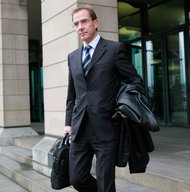Related Links
LONDON — European regulators called for a major overhaul of a benchmark interest rate on Friday, but stopped short of demanding direct regulatory oversight after a rate-rigging scandal.
The recommended changes to the euro interbank offered rate, or Euribor, come after a $1.5 billion settlement by the Swiss bank UBS, where some traders were found to have altered that rate as well as the London interbank offered rate, or Libor, for financial gain.
The European Banking Authority and European Securities and Markets Authority are pushing to improve the accuracy of the benchmark rate and increase oversight of how banks submit rates to Euribor, which underpins trillions of dollars of global financial products.
European authorities said the system did not require participating banks to have internal governance structures to manage potential conflicts of interest when submitting rates to Euribor. Also, the rate-setting process is not sufficiently assessed against real banking transactions, according to the report.
The recommendations include cutting in half the number of maturities included in the Euribor process, to seven rates. That would leave the focus only on benchmark rates that are supported by a large number of financial transactions.
The change is in response to a drastic reduction of lending among global financial institutions during the financial crisis that reduced the accuracy of firms’ rate submissions. The fall in actual transactions also led a number of traders and senior managers at global banks to manipulate the rate, according to regulatory filings.
On Friday, European authorities did not demand direct regulatory control over Euribor, which continues to be overseen by the European Banking Federation, a trade body. A recent review of Libor by British authorities recommended regulatory oversight of that rate, as well as criminal charges against individuals trying to alter the rate for financial gain.
Despite widespread calls for authorities to take control over global benchmark rates, the European regulatory bodies do not have the legal responsibility to recommend those changes, according to a European Securities and Markets Authority spokesman.
The European Commission is considering changes to how global benchmark rates are set, and is expected to propose legislation later this year.
Other recommendations outlined by European authorities on Friday included regular audits of the rate-setting process by the European Banking Federation, as well as increasing the independence of the board that oversees Euribor. The trade body said it welcomed many of the changes outlined by the European banking and financial market regulators, adding that it was open to regulators participating in the supervision of Euribor.
Greater scrutiny of the benchmark rate is already having an effect.
As more banks continue to be embroiled in the rate-rigging scandal, a number of financial institutions, including Rabobank Groep of the Netherlands and Raiffeisen Bank International of Austria, have left the panel that sets Euribor. Euribor-EBF, the group that oversees the rate, has said other banks could also pull out of the rate-setting process.
Article source: http://dealbook.nytimes.com/2013/01/11/regulators-propose-overhaul-of-euribor-interest-rate/?partner=rss&emc=rss
